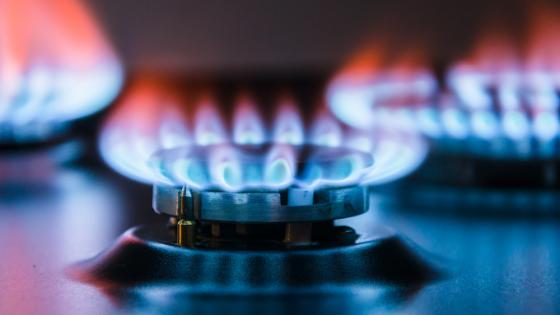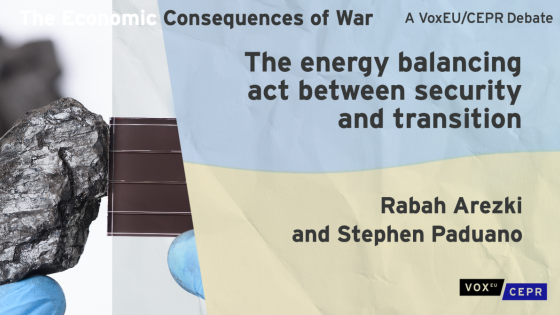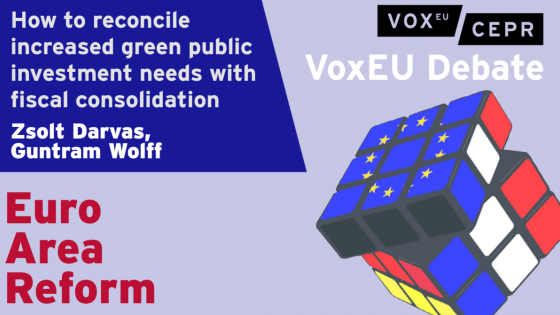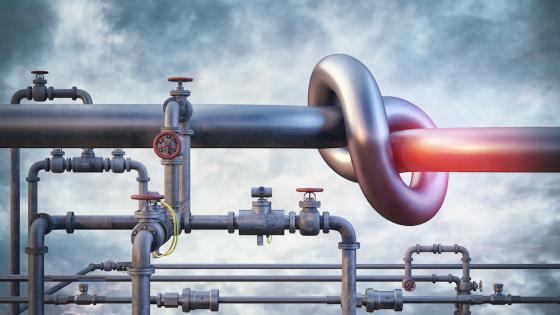Editors' note: This column is part of the Vox debate on the economic consequences of war.
In June 2022, the EU introduced a partial embargo on Russian oil exported by sea. The European Commission also announced a commitment to reduce gas imports from Russia by two-thirds within a year. While Russian oil can be easily substituted with oil from other suppliers, Russian natural gas is more difficult to replace for European countries due to the rigidity in natural gas infrastructure and in particular the limited capacity of liquefied natural gas (LNG) terminals in Europe.
By the same token, replacing existing clients for gas is much harder for Russia, making a ban from European countries on this commodity particularly effective in reducing Russian export receipts. European leaders’ reluctance to implement such a policy is driven by concerns over the political cost they might bear domestically if such a ban translates into even higher natural gas prices and lower GDP growth (Feliciano et al. 2022). In particular, politicians worry that adding another source of inflation might be unpopular with their electorates. Conversely, softer tariff measures would impact the EU consumers less, but their effectiveness is unclear (Vaitilingam 2022, Garciano 2022).
The European Commission has proposed a voluntary target for all Member States to cut gas use by 15% until the spring of 2023. European households are exempted from the proposed measures even though a significant fraction of them is willing to contribute to the efforts needed to stop Russia’s invasion of Ukraine (Eurobarometer 2022). A recent survey in Germany suggests that 70% of Germans back Ukraine despite high energy prices (Reuters 2022). We therefore propose a mandatory disclosure requirement for gas and electricity retailers of the share of gas they buy from Russian sources.
Such a measure would address the information deficit for consumers and empower citizens to act on their own will. Political concerns that have stymied actions so far would thus be mitigated, as only consumers with the corresponding preferences and ability to bear the potential cost would act. As the consumers switch away from the gas supplied from Russia, the revenues of utilities will be reflective of their sourcing strategies. In turn, some utilities will be encouraged by the market to source their gas elsewhere.
The EU already has experience in implementing similar measures to the one needed to calculate the shares of gas sourced in Russia, having successfully implemented green electricity certificates more than a decade ago. These methodologies are robust, transparent, and able to deal with cases when the energy is sold through an intermediary or on the spot market.
Ideally, to maximise efficiency and fairness, the disclosure policy would need to be introduced at the EU level. Any EU-level action, however, will have a lengthy implementation lag, as the European Commission would need to develop and submit a proposal to the Parliament and Council, for the Parliament to adopt and the Council to approve, and, if needed, for the Member States to transpose it into the national laws. Other approaches, such as voluntary reporting, should be considered in the meantime.
It is important to acknowledge that the EU's energy infrastructure will only be able to support a certain level of alternative gas sourcing in the short term, limiting the effectiveness of the proposed measure for those countries that are most dependent on Russian gas imports. For example, Spain, which imports 10% of its gas from Russia, entirely as LNG, and which has six LNG import terminals, can replace Russian LNG with the LNG sourced elsewhere; while Germany, with no LNG terminals, would need to rely on the pipelines to the neighbouring countries and their LNG terminals. In the scenario of insufficient supply, household consumption will likely be prioritised ahead of industrial gas consumption, causing a reduction of economic activity of up to 6% in the most affected economies (Flanagan et al. 2022).
Once in place, the disclosure would encourage investment in additional natural gas infrastructure to enable higher level of supply diversification. It could also mean that the price of natural gas increases for those consumers that choose not to buy from Russia. These price signals for solidary consumers would encourage them to save energy or to switch to alternative energy sources when possible, for example, when renewable electricity can be used instead of natural gas for heating. This will translate into additional investment in renewable energy infrastructure on the supply side and in new equipment and artifacts on the demand side (Arezki and Paduano 2022, Darvas and Wolff 2022).
Conclusions
A proposed disclosure requirement on the sourcing of gas in Europe will play a positive role in reducing Russia’s export receipts and thus limiting its aggression in Ukraine. This policy is in line with the EU’s environmental ambitions and is expected to result in substantial environmental co-benefits (Chepeliev et al. 2022). Such benefits are particularly important at a time when the costs of green transition have risen and the political debate in Europe is shifting towards postponement of many green measures.
References
Arezki, R and S Paduano (2022), “The energy balancing act between security and transition”, VoxEU.org, 01 July.
Darvas, Z and G Wolff (2022), “How to reconcile increased green public investment needs with fiscal consolidation”, VoxEU.org, 07 March.
Chepeliev, M, T Hertel and D Van der Mensbrugghe (2022), “Cutting Russia’s fossil fuel exports: Short-term pain for long-term gain”, VoxEU.org, 09 March.
European Commission (2022), “Questions and Answers on the EU ”Save Gas for a Safe Winter” Plan”, ec.europa.eu, 20 July.
Eurobarometer (2022), “EU’s response to the war in Ukraine”, europa.eu, May.
Feliciano, M, E Ilzetzki and B N Zhu (2022), “Effects of an embargo on Russian gas”, VoxEU.org, 24 May.
Flanagan, M, A Kammer, A Pescatori and M Stuermer (2022), “How a Russian Natural Gas Cutoff Could Weigh on Europe’s Economies”, IMF blog, 19 July.
Garicano, L (2022), “How tariffs can stop Putin's war”, CEPR’s Paris Symposium, June.
Reuters (2022), “70% of Germans back Ukraine despite high energy prices, survey shows”, reuters.com, 15 July.
Vaitilingam, R (2022), “Energy sanctions: Views of leading economists”, VoxEU.org, 21 May.



